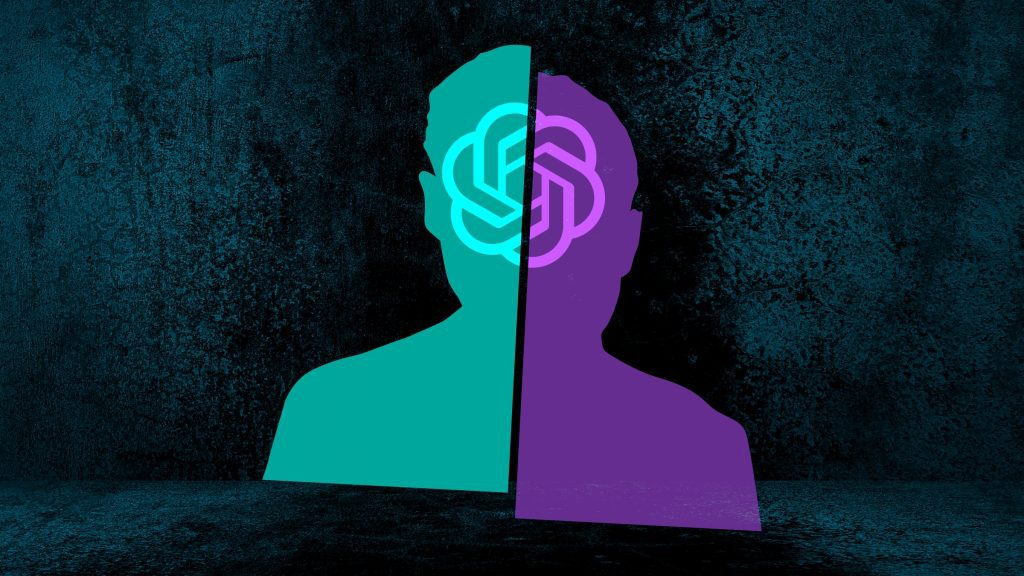
In 2025, a new research showed the increased cognitive decline, emotional dependency, and shifts in human language, with experts warning that AI tools are reshaping how well people think, learn, and regulate emotion, leading us to an era of AI human thinking.
AI moved from novelty to necessity in just a few years, promising efficiency through apps like Microsoft Copilot and ChatGPT.
Yet, an increasing number of studies now warn that these tools don’t just help us; they are more actively changing human cognitive processes, weakening problem-solving skills, and influencing emotional stability. Taken together with evidence of widespread user dependency, the findings raise urgent questions about how deeply AI is reshaping both mind and behavior.
AI Changing Human Thinking
A 2025 study titled “Your Brain on ChatGPT, “Accumulation of Cognitive Debt when Using an AI Assistant for Essay Writing Task” showed big differences in brain activity among users writing essays with and without AI. Using electroencephalography (EEG), researchers found that participants relying mainly on their own thinking showed the strongest neural activity, while those using Large Language Models (LLMs) displayed the weakest.
When the groups switched tasks, the “Brain-to-LLM” participants improved memory and neural engagement, but the “LLM-to-Brain” group showed striking underperformance. Even more concerning, LLM users failed to recognize their own work or even quote it and scored lower on behavioral and language skills. As the study determined, AI reliance is “depleting human brain power,” with cognitive shortcuts impairing long-term learning.
Linguistic researchers identified similar disruptions of AI human thinking. An analysis of over 22 million unscripted spoken words showed a sharp rise in AI-favored language after ChatGPT’s introduction, including terms like “meticulous,” “strategically,” “garner,” and “surpass.” Their report, “Model Misalignment and Language Change,” suggests that, increasingly, “the machine is now teaching the human.”
Psychologists warn that the impact could be especially damaging for young learners. Without basic skills in meta-learning, adaptation, and self-efficacy, students risk becoming “AI-dependent,” unable to tolerate mistakes or develop independent problem-solving abilities.
Human Intelligence With AI
As cognitive concerns of AI human thinking begin to grow, the emotional effects may be even more alarming. OpenAI’s own study from October 2025 estimated that over 1.2 million weekly users show signs of emotional dependency or suicidal ideation. Posts across describe users experiencing “AI-induced psychosis,” altered reality, or prophetic delusions after prolonged late-night exchanges with ChatGPT.
MIT Media Lab’s controlled study discovered that chatbot interactions increasingly mimic empathy so well that users form deep bonds, specifically with voice-enabled models. As MIT Technology Review noted, “we’re starting to get a better sense of how chatbots are affecting us but there’s still a lot we don’t know.”
Digital Trends reported that GPT-5 safety updates were needed after discovering widespread attachment, reducing unsafe responses by up to 80%. This emotional entanglement has consequences.
According to Indian Express and BBC, even small percentages of distress scale dramatically when applied to ChatGPT’s 800 million weekly active users.
One viral social thread online described families watching loved ones spiral into mania, believing physics had “broken” or that the AI revealed divine missions. Another warned that “hundreds of thousands are showing signs of mental health issues weekly.”
Yet, AI’s therapeutic potential is not dismissed entirely. A Dartmouth trial cited by researcher Amy Wu Martin reported reductions of 51% in depression and 31% in anxiety using AI-based therapy tools. But experts caution these benefits must be balanced against the mounting risks of delusion reinforcement and crisis mishandling.
As one New York Times report put it, “chatbots should be built with enough resilience to deal with difficult emotional situations.”
Across these studies lies a deeper philosophical divide. Humans build meaning through time, memory, revision, and anticipation, while AI exists in a perpetual present. As one analyst observed how “AI collapses time into immediacy.”
It creates an illusion of master where instant answers feel like understanding, though no true cognition has occurred. If society begins favoring AI’s speed over the slower formation of wisdom, the danger may not be that AI human thinking replaces human intelligence, but that humans stop thinking like humans.
Inside Telecom provides you with an extensive list of content covering all aspects of the tech industry. Keep an eye on our Intelligent Tech sections to stay informed and up-to-date with our daily articles.